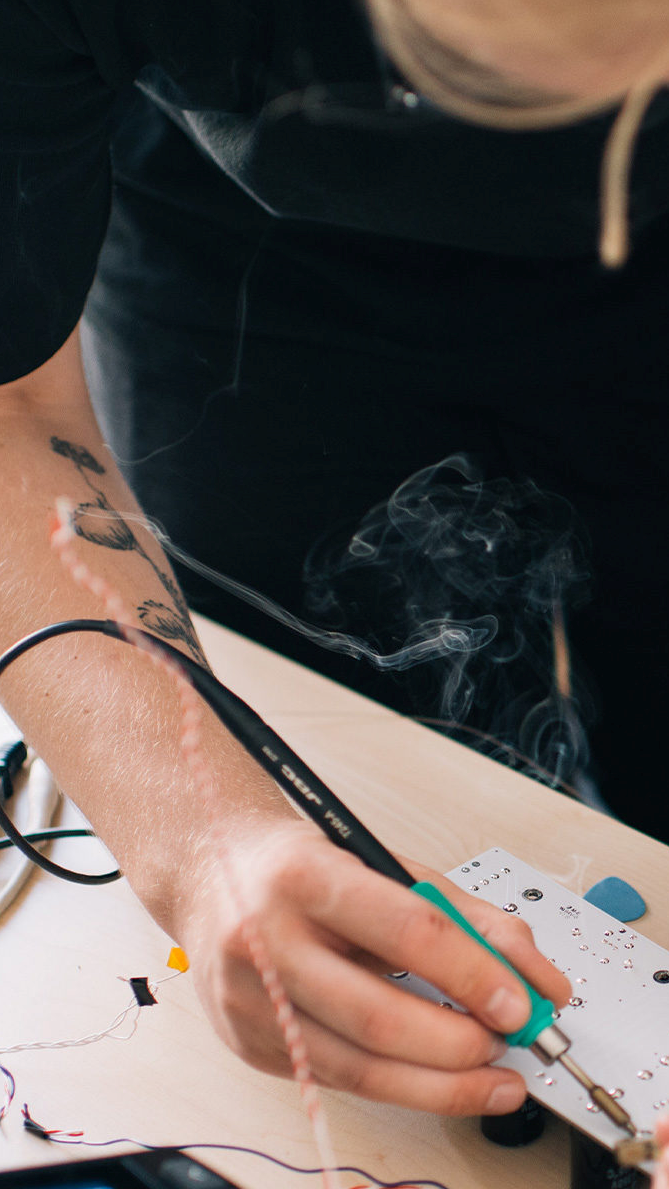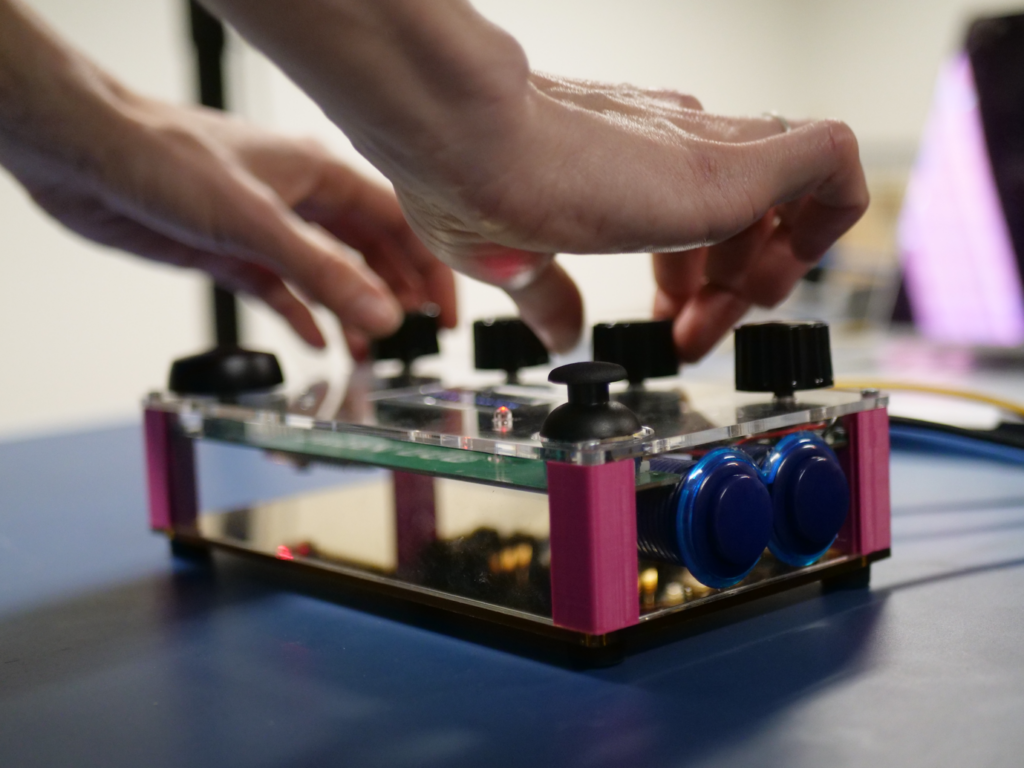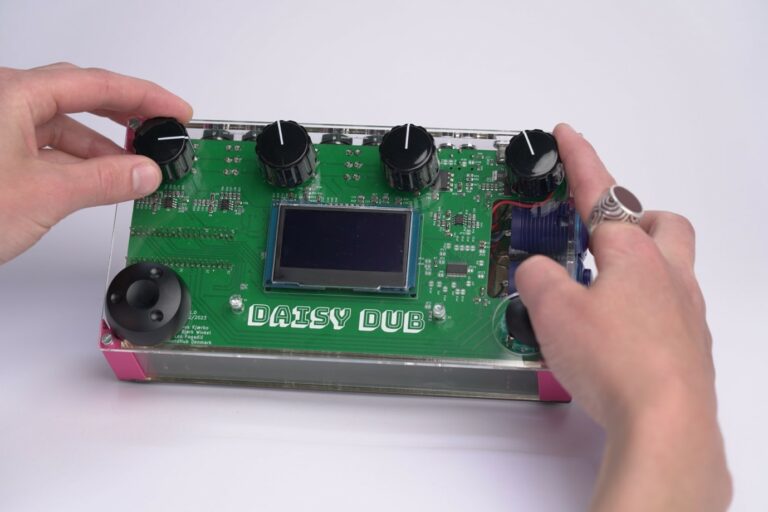Workshops
04/09 Workshop 1 - Applying Machine Learning to Virtual Analog Modeling
Boris Kuznetsov
How do we apply advances in the machine learning and deep learning fields to the discipline of classical signal processing and virtual analog modeling?
We will talk about how you can use machine learning to both help you design and iterate on virtual analog models faster and how to potentially replace entire subsets of your work with deep learning.
Bio
Boris Kuznetsov obtained his Bachelor’s in Electrical Engineering at the University for Applied Sciences in Karlsruhe, Germany, followed by a Master’s in Sound and Music Computing at the Aalborg University in Copenhagen, Denmark.
He worked as a DSP engineer at Harman and a Research Engineer at Native Instruments, where he mainly worked on the technology behind Guitar Rig 6’s ICM amplifiers, a deep learning framework to model guitar amplifiers and other analog sound processing devices.
He currently lives in London, UK.
Workshop activities
- Quick revision of deep learning basics
- Establishing the link between RNNs and (nonlinear) ODEs
- JAX Basics
- Implementing and training a differentiable State Variable Filter in JAX
- A simple deep Wiener-Hammerstein model using differentiable SVFs and MLPs.
- Implementing an implicit diode clipper in JAX
- Using stochastic gradient descent to fit the diode clipper model to real data
- A general deep nonlinear state space model to fit any system representable as an ODE
- How to use Acme.jl to generate synthetic training data
- Q & A
Target Audience
Students, researchers and industry practitioners interested in using deep learning/machine learning to accelerate their VA pursuits.
Prerequisites
Basic understanding of digital signal processing for musical applications and virtual analog modeling will be required. Deep learning knowledge is helpful, but not necessary to follow along.
Material
Laptop with:
- Python3
- (Optional) Julia
Packages:
- Python3
- JAX
- Matplotlib
- Scipy
- Numpy
- Soundfile
- Julia
- Acme.jl

08/09 Workshop 2 - Daisy Dub Hackathon for Digital Audio Effects Enthusiasts and DSP developers (Max/gen, Rust, C++, PureData, Arduino)
Rasmus Kjærbo & Leo Fogadić – Componental
Join us for an exhilarating hackathon workshop centered around the groundbreaking Daisy Dub pre-production prototype: the ultimate swiss army knife tailored for music producers, DSP developers, and DJs. Dive into the expansive world of quadrophonic real-time audio engineering and live performance and experience the processing power of Electro-Smith’s Daisy Seed DFM module.
Registration: https://forms.gle/vhc6qzaxT1yF57AA9
Bio
Rasmus Kjærbo: Rasmus is the CEO and driving force behind Componental. With a background as a cand.polyt in Sound and Music Computing from AAU Copenhagen, he blends his academic insights with his entrepreneurial spirit. Rasmus is also the founder and director of Rumkraft – The Electronic Music School, further emphasizing his deep connection to the music and tech world. Passionate and dedicated, he strives to bring innovation and creativity to the forefront of the audio industry.
Leo Fogadić: As the CTO of Componental, Leo plays an instrumental role in shaping the technical direction of the company. Like Rasmus, he also holds a cand.polyt degree in Sound and Music Computing from AAU Copenhagen. Leo’s expertise lies in the nexus of music, technology, and software development, ensuring that Componental remains at the cutting edge of innovation. Together with Rasmus, he is committed to revolutionizing the way creators engage with music and technology.
Workshop Objective and Outcome
Craft cutting-edge audio algorithms for the Daisy Dub device utilizing languages and platforms such as Rust, C++, Arduino, gen (Max by Cycling ’74), or Pure Data. Whether you’re aiming to revolutionize reverb, recalibrate compression, or reimagine resonance, the floor is yours.
As the culmination of our collective creativity and technical prowess, we’ll crown a winning algorithm. All workshop-developed algorithms will be compiled into a special ‘DAFx ’23 Daisy Dub Package’, showcasing the collaborative innovation from the event.
Program
9:00 Welcome and intro to Daisy Dub / Daisy Seed DFM
9:30 Hackathon start
14:30 Hackathon finish, algorithm presentations and crowning
15:00 Thanks and goodbye
Target Audience
Participants passionate about DSP programming, particularly those focused on real-time audio effects or synthesis. Both seasoned programmers and novices, especially those acquainted with Max/gen, are encouraged to join.
Material
Please bring along a laptop equipped for developing algorithms. Ensure it’s set up with the necessary software and tools you’d prefer to work with during the hackathon.


